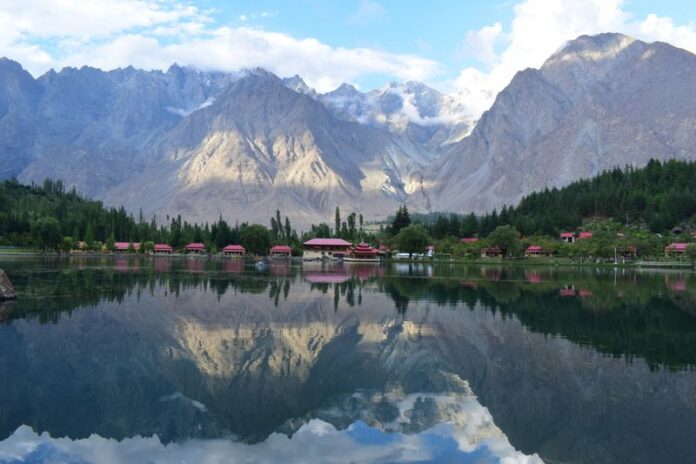According to the World Bank, Pakistan brought in $16 billion in tourist spending in 2022, and that amount is expected to rise to $30 billion by 2033.
According to the bank’s website, the travel and tourism industry would create 4.2 million jobs and contribute 5.9% of Pakistan’s GDP in 2022. Considering the variety of tourism destinations spread out over the nation, this is not ideal.
Following the lifting of COVID-related travel restrictions, Pakistan saw an extraordinary increase in domestic tourism: in 2021 and 2022, more than 1.2 million visitors from both domestic and foreign countries entered the nation’s Khyber Pakhtunkhwa region.
The local government, communities, and commercial sector need resources, equipment, and training to manage the growing number of tourists throughout the year while using their underutilized economic potential. All of this must be done without sacrificing their commitment to sustainable and inclusive tourism.
The Khyber Pakhtunkhwa Integrated Tourism Development Project (KITE) project, which aims to preserve heritage and develop tourism infrastructure, is complemented by the Travel Responsibly for Experiencing Eco-tourism in Khyber Pakhtunkhwa (TREK) initiative. The TREK initiative is a collaboration between the World Bank (WB), Nestlé Pakistan, and the Khyber Pakhtunkhwa government.
It has finished visitor awareness programs and provided trash management training to nearby communities and hospitality establishments since 2020.
In the tourism areas of Khyber-Pakhtunkhwa, TREK has taught more than 650 participants from more than 150 hotels and restaurants. The Peshawar, Nathiagali, Abbottabad, Swat, Naran, and Chitral districts’ local people, government agencies, and academic institutions were also among the beneficiaries.
Techniques for managing, recycling, and minimizing solid waste were the main topics of these trainings.
Additionally, social media and radio campaigns were used to spread public service announcements about responsible tourism in Khyber Pakhtunkhwa, Islamabad, and Lahore. Due to the concentration of the majority of the nation’s domestic tourists in these areas, information on the significance of maintaining litter-free tourist sites can be obtained by calling tourist helplines.
Ten thousand reusable bags were given out to visitors and the hotel association in popular tourist areas with the intention of promoting their usage and reducing trash.
In parallel, the KITE project, funded by IDA, installed 50 tourist information signboards to support the awareness campaigns and gave waste bins, garbage collection, and compacting machinery to the local authorities in the districts of Nathiagali, Naran, Chitral, and Kumrat in Khyber Pakhtunkhwa, as well as a few locations in Punjab province.






